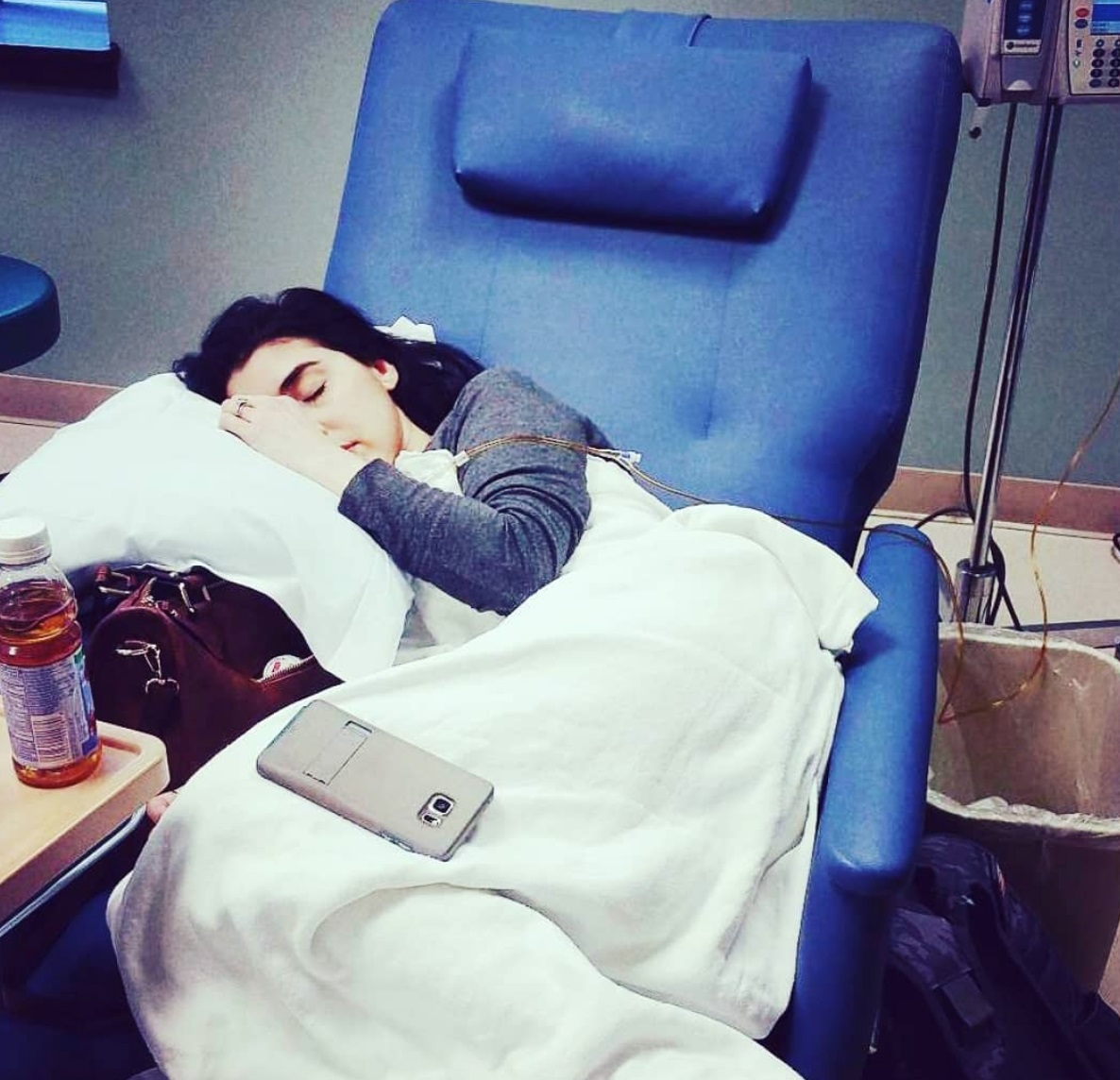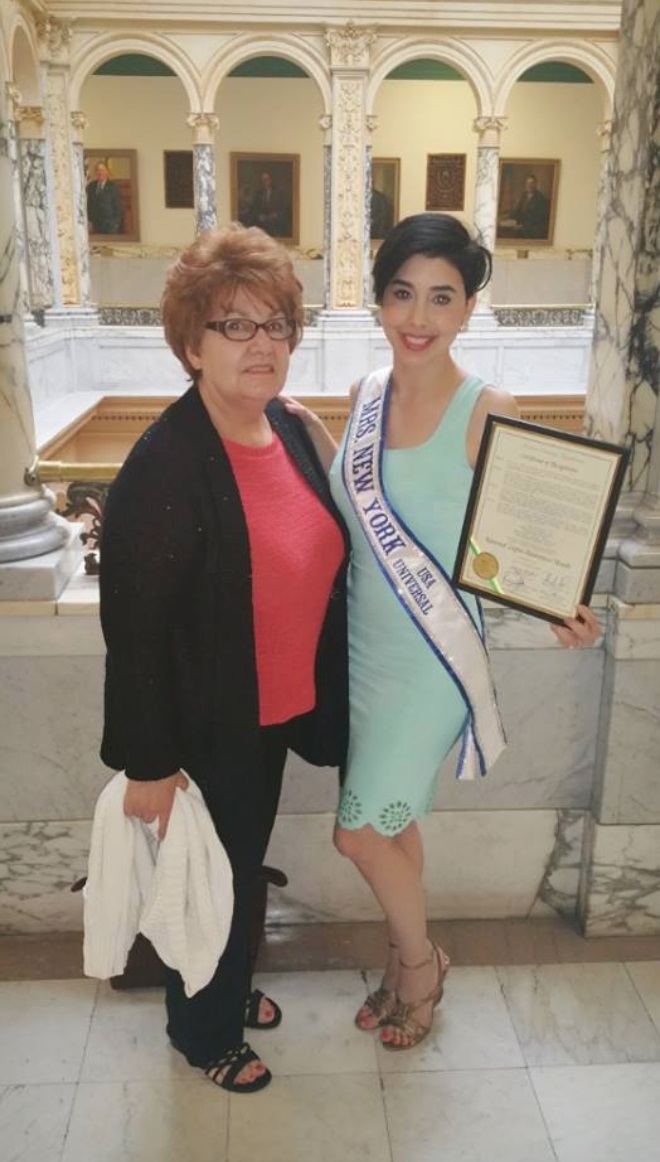The evening death came for me: My journey with PTSD
On a gorgeous Florida evening, a truck crashed into me. As I lay in intensive care, I learned who had been driving it.

This is the shirt; the one that wrapped itself around my alabaster skin the evening death came for me. A paper-thin cotton shield designed for fashion that assumed the role of armour. Its pairing – black terry cloth sweatpants – failed to survive, some of the threads disintegrating on impact, the rest embedding themselves into the meat of my right thigh.
“Are you prepared to get rid of this thing yet?” my mother gently inquires every 12 months, as I tenderly unfold the fuchsia halter top from the back shelf of my cherry wood armoire and hug it close to my body. The question has become a tradition during our annual clothing cleanout.
Keep reading
list of 4 itemsFirst pig kidney in a human: Is this the future of transplants?
Why are some countries decriminalising drugs?
‘No good evidence’ for gender care for youth over long-term, review finds
I cannot help but notice that its straps have lost their shape, the fabric its lustre, as though it too was stripped of its life that night.
In 2001, on a gorgeous and humid South Florida night, the smell of an oncoming rainstorm hung heavy in the air. And I, walking across a road to get to my car, as I did countless times in the past, would never make it.
I cannot recall the exact moment my 100-pound (45kg) frame collided with more than 3,000 pounds (1,360kg) of steel, but I can remember an erratic driver behind the wheel of a pick-up truck barrelling towards me.
I tried to run. But there was no way to save myself.
I fool myself into thinking that if I can just stay conscious, death cannot have its way with me tonight.
I have relived those few steps that were the final moments of my “then” life ad nauseam. My mind to this day, clearly connecting a spider web of memories as though it was yesterday – of sandals pounding into the gritty asphalt, my legs picking up speed, my heart springing into action from adrenaline. I was still safe, still healthy, still Marisa in these moments. Until I was not.
“It’s proof, mum,” I snap back, mindful of my sour tone the second the words fall off my lips.
“A reminder of beating death. How can you get rid of something like that?”
But perhaps what is a token of survival for me is a symbol of loss for my mother. Though her child survived, a clear line of demarcation was set that evening and its trauma relived by the two of us, far too often to count.
Woozy from morphine, I distinctly remember a trauma surgeon telling her: “If she makes it until the morning, we will have a much clearer picture of her prognosis.” I was not more than two feet away but I feared he may have given up on me already.
I just won’t sleep, my brain played on repeat. I fooled myself into thinking that if I could just stay conscious, death could not have its way with me that night.

‘I will walk again’
I lay flat in my hospital bed in the trauma intensive care unit for weeks, forbidden to fully sit up, allowing my five liver lacerations time to heal without added pressure on the organ.
Machines rung out, singing choruses to one another, a battle cry that there was still life among those of us unwilling to give up.
The nurses told me that of the handful of patients in the trauma unit, I was the only one conscious. Conscious but held prisoner.
I was acutely aware of my injuries – broken ribs, internal bleeding, fractured pelvis, lacerated liver, and a head injury to name a few; aware of my loss – my college career now on hiatus, the need to go to rehab to learn how to walk again; and aware of the uncertainty of life – how our patience and resolve are tested when the unexpected happens.
I could not rationally make sense of the event during my waking hours, often falling down rabbit holes searching for clues I must have missed along the way.
Countless hours each day were filled with silent pep talks, reminding myself of my knack for compartmentalising and processing past traumas or difficult life circumstances in order to move forward.
My liver will heal.
I will go to rehab.
I will start walking again.
And I will return to school.
I focused on the fact that I was a few semesters away from completing nursing school. The reality that extraordinary nurses were caring for me and helping me progress each day provided even more motivation to recover.
I will help someone through their trauma one day, I told myself.
This was my plan for the future until three uniformed men entered my room one afternoon, their body language serious but their eyes filled with compassion and concern.
After brief, formal niceties, one man moved a seat away from the wall, placing it near the head of my bed. He is the detective on the case, one I would communicate with regularly in the days ahead.
“Marisa, we arrested the person who ran you over. He was under the influence at the time, it looks like alcohol and crystal meth,” he sighed and averted his eyes from mine to his knee, where his thumb flicked the corners of paperwork he was carrying in his hand.
I noticed his brunette hair. There were hints of red undertones signalling it had been kissed by the Florida sun. He was handsome, not old enough to be my father, not young enough to be a peer.
“There is no ideal way to tell you the next part, so I will just come out and say it because we need to get a statement from you. The individual who hit you was your ex-boyfriend. We arrested him and he has been charged with attempted murder.”
And then I crumbled …
Back then, I did not have a handbook to consult nor much guidance when it came to processing the fact that someone I once loved so incredibly deeply almost took my life. There was no search engine I could run to that would share the experiences of others who had been through it. Those around me could not grasp it.
I found myself alone, forced to sit with the reality of the situation, 24 hours a day, isolated in my hospital room, unable to move.
Domestic violence is an event that can often breed silence from those you love most, those you need the most. A silence that sometimes befalls out of confusion, fear of saying the wrong thing, anger, or just time needed on their end to make sense of it all. I do not blame anyone for not knowing what to say. But sometimes I felt that hearing anything was better than silence, which allowed my mind to descend further and further into darkness.
My 23-year-old brain was barely hanging on to its ability for rational, logical thinking and the conversation with these three men sent me spiralling. Twenty-four-hours later I would have my first of what would become crippling panic attacks.
I had held it together for weeks, acutely focused on the fact that I had survived getting run over by a truck travelling at 50 miles per hour (80km/h). I likened myself to a superhero – literally run over by a truck and lived to tell the story.
And then I crumbled …

The nightmares started shortly after that meeting with the police. Almost every time I slept, I reimagined the moment of impact, but in my dreams, I never survived. Instead, the tyre of the truck ran over my face instead of my body, crushing my bones and brain deep into the pavement. It was always my face, my brain that was struck.
I could not rationally make sense of the event during my waking hours, often falling down rabbit holes searching for clues I must have missed along the way. It felt like my brain was on hyperdrive during the day, screaming for something, anything, to make sense, while in my dream state, my brain discovered its own way to silence it all.
I would wake to the monitors at the side of my bed beeping frantically. Sweaty, nauseous, and unable to catch my breath, I would rouse disoriented.
“Marisa, I am going to give you something to help you calm down. Don’t sit all the way up,” the nurse would order me, in a voice that held both compassion and control.
Wet from sweat and urine, shaking, teeth chattering. I longed for my mother’s hand. Then the drugs would work their magic, all would be quiet again, and for a few moments it would feel like the last few weeks in the hospital were just a nightmare.
My monster, PTSD
“Marisa, are you familiar with PTSD?” the hospital psychiatrist asked me.
I had been recommended for an evaluation after it became clear that the shock of the event had worn off but that I was drowning in a sea of emotions, fear and panic.
“Isn’t that something people from war experience?” I responded.
My only familiarity with the term was hearing it spoken by someone at college, her dad crippled by its symptoms after returning home from Vietnam, sick from Agent Orange. There were no social media conversations about PTSD back in 2001, no one discussing the link between trauma and the disorder.
It is not just an after-effect of war, I learned. It can also happen from surviving a natural disaster, domestic violence, abuse, severe injury, or witnessing an atrocity. And my symptoms were classic, the psychiatrist told me – distressing recollections of the event, nightmares, feeling jumpy, being easily irritated … I could check off so many of the symptom boxes, I became embarrassed and tried to downplay what I was experiencing. But there was no hiding it.
And so began a 17-year journey with my monster, PTSD – post-traumatic stress disorder.

Although the disorder originally seemed like the driver on the journey to my recovery, I eventually learned how to demand it take its place in the passenger seat, slowly increasing my level of control. Today, I like to think of it as something stowed away in the boot. It still travels with me, but for the most part, it does not control my path.
PTSD is rooted in trauma. It can occur when someone witnesses or experiences a shocking or life-threatening event, one in which they feel their life or someone else’s is in danger. The trauma and stress-related disorder is believed to affect eight million adults in the United States alone in any given year.
While much of the initial research on trauma and PTSD was conducted on male war veterans, today’s research shows women have higher rates of PTSD. Trauma that can lead to PTSD in men may include combat trauma, natural disasters, or an accident, whereas, with women, rape, sexual assault, sexual abuse, and domestic violence typically top the charts.
Both my quiet time in recovery and my almost two-decade-long journey with PTSD have taught me one of the most valuable lessons of my life – that my thoughts have enormous power.

They have the power to make me physically sick – to trick me into believing I am having a heart attack, or that my throat is closing when I am in the midst of a panic attack.
They have the power to take me back to the moment of impact and completely disorient me from the task at hand.
They have the power to corrupt and override my dreams, goals and achievements.
They have the power to ruin my life, this one life I was so honoured to have … if I let them.
I have not found all the answers to my struggle with PTSD but I have found that psychotherapy, exposure therapy, prayer, and sometimes, medication, have given me back most of the control I believed I had lost that evening in Fort Lauderdale.
Today, my breath still becomes silent and my heart immediately picks up pace almost every time I hear the whoosh of a car whiz by me, smacking me in the face with its wind, as I walk my terrier down the sidewalk. I see a flash of my bright fuchsia halter top covered in blood. My natural instinct every single time is to run. To protect myself.
Instead, I stand tall, inhale slowly, and remind myself I am getting better. I look down and lock eyes with my dog and whisper, “It’s ok. We are safe.”